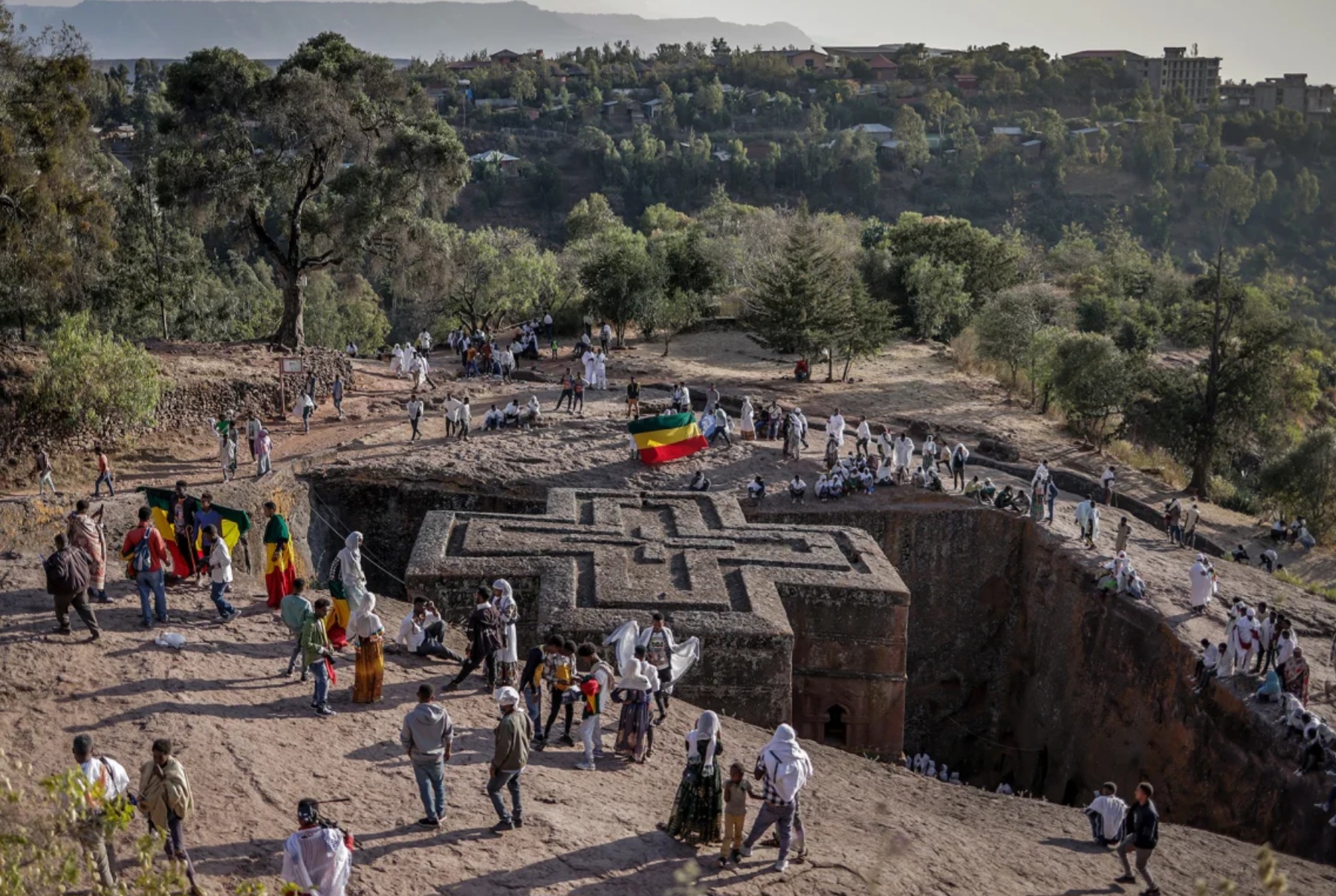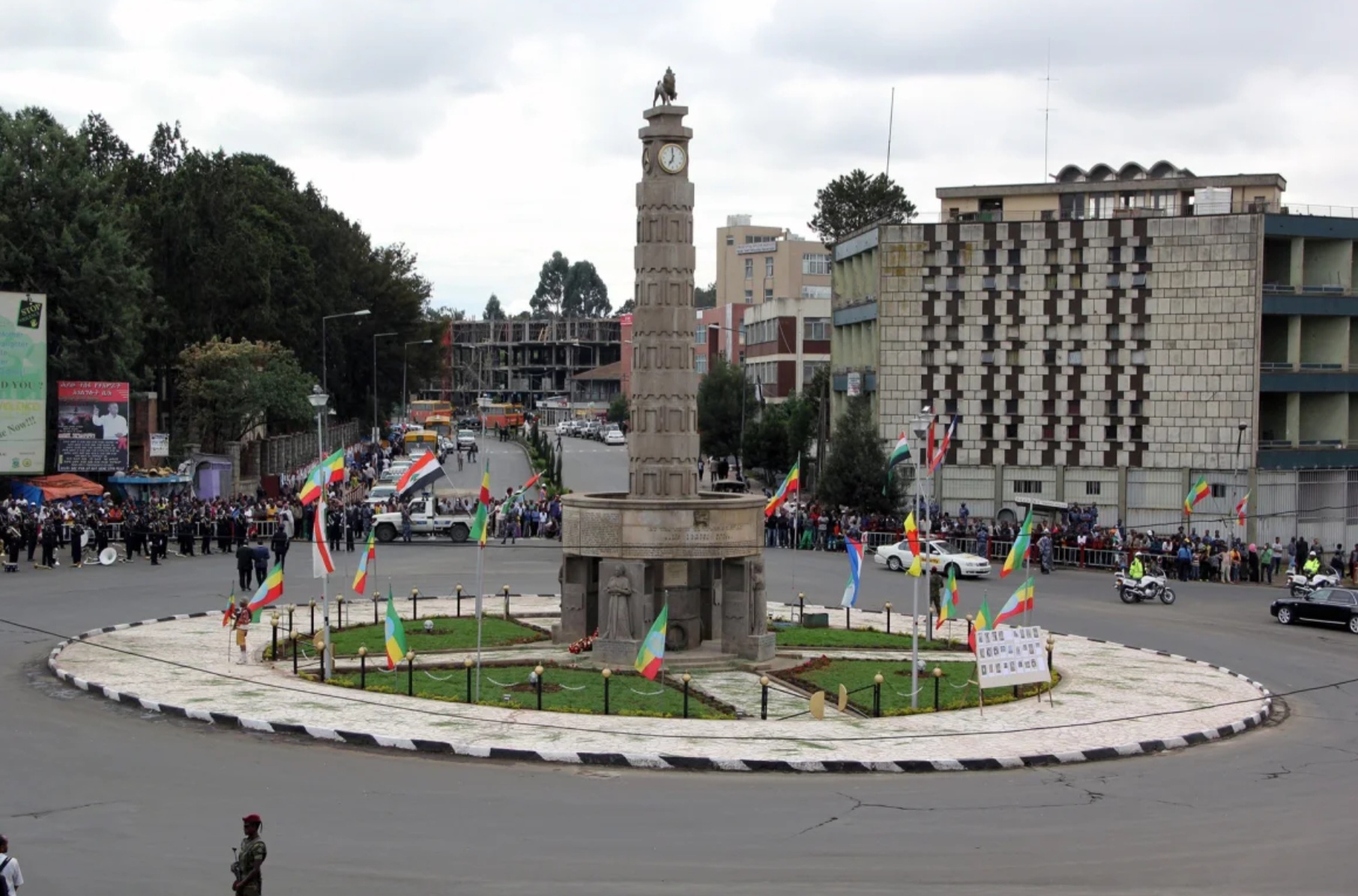However, when this East African nation enters its new year in a few months, it will technically be 2017 according to the Ethiopian calendar. And, while the rest of the world has already welcomed 2024, in this country, people are still in 2016.
So why is Ethiopia, Africa's second most populous country, seven years and eight months behind most of the world? What difficulties does this create for Ethiopians living on an increasingly interconnected planet and mostly operating in a completely different era?
The answer lies in traditions dating back centuries – and a strong sense of national identity.
Unique "time-reversing"
In Ethiopia, the year of Jesus Christ's birth is recognized seven or eight years later than the Gregorian calendar, or "Western" calendar, which was introduced by Pope Gregory XIII in 1582.

New Year in Ethiopia is celebrated in September, when the native Adey Abeba flower is in full bloom.
According to experts, the Roman Catholic Church adjusted its calculation method in 500 AD, while the Ethiopian Orthodox Church chose to retain the original ancient date.
Although much of the rest of the world continues to use the Gregorian calendar, Ethiopia has retained its own calendar.
Eshetu Getachew, CEO of Rotate Ethiopia Tours And Travel, said: "We are unique. We have our own calendar. We have our own alphabet. We have our own cultural traditions."
Believed to date back at least 1,500 years, the Ethiopian calendar shares many similarities with the Coptic calendar of the Coptic Orthodox Church in Alexandria, Egypt.
According to the solar-lunar system, a month lasts 13 months, of which 12 months are 30 days long. The last month has only five days, or six days in a leap year.
Tourists visiting Ethiopia are often astonished to learn that they have "turned back time," with some using social media to express their bewilderment.
Because international businesses and schools based in the country tend to follow the Gregorian calendar, many Ethiopians have no choice but to use both the traditional Ethiopian calendar and the Western calendar simultaneously.
"That's very difficult," Ethiopian archaeologist Goitom W. Tekle, currently working in Germany, told CNN Travel.

Many worshippers gather next to the rock church in Lalibela, a UNESCO World Heritage site.
Tekle explained that some organizations have to constantly switch between the two calendars, incorporating different dates and times when corresponding to Ethiopians, especially those in rural areas and those living abroad.
Even simple things like applying for a birth certificate can cause problems when trying to integrate Ethiopia's system with the Western system.
Wouldn't that be more "reasonable"?
Photographer Abel Gashaw is one of many Ethiopians who have adapted to moving between the two calendars with relative comfort.
However, he admitted that he personally preferred the Ethiopian calendar, describing it as "more logical," especially when it comes to the timing of the beginning of the year.
New Year, or Enkutatash, which means "gift of jewelry" in the Amharic language of the Semitic people of Ethiopia, arrives at the end of the rainy season.
Adey Abeba, a flower native to Ethiopia, blooms during this period and has become a symbol of the Ethiopian New Year.
Gashaw said, "It was like a fresh start. Then the rain gradually decreased and everywhere you went was very green."
He went on to point out that celebrating the new year on January 1st would be meaningless in Ethiopia because it falls during the dry season, while September 11th (or September 12th in a leap year) also marks the beginning of the new year in Egypt.
In Ethiopia, it's not just the months, days, and years that are different. The country also follows its own unique time system.
12 o'clock
While most countries begin their day at midnight, Ethiopians use a 12-hour clock system that runs from morning to night, starting at 1 a.m.
This means that most people outside the country would consider it 7 a.m., but Ethiopians would consider it 1 a.m.

Ethiopia follows a 12-hour clock system, running from morning to night.
Gashaw explained that this reflects life in Ethiopia – the number of daylight hours in the country is fairly consistent due to its proximity to the equator – and that it seems like a more logical approach.
However, the time difference in this country can be confusing, especially for tourists.
When scheduling appointments with international tourists, Gashaw always makes sure to clarify whether they are referring to Ethiopian time or Western time.
"When I buy my plane tickets, the airlines use the European calendar, so I check three or four times to make sure I understand my time," he added.
However, he sometimes made mistakes. Gashaw once failed an exam because his university's class schedule was set according to Western time, and he misunderstood it.
"When the school announced the exam was at 2 PM, I thought that was Ethiopian time, meaning it was morning. So when I arrived, there was no one there. I thought: The exam must have been canceled."
Source: https://thanhnien.vn/ky-la-dat-nuoc-van-dang-trong-nam-2016-185240617155615076.htm






![[Photo] The General Secretary presents the title of Hero of the People's Armed Forces to the Navy.](https://vphoto.vietnam.vn/thumb/1200x675/vietnam/resource/IMAGE/2026/02/28/1772251730336_vna-potal-tong-bi-thu-to-lam-du-va-trao-danh-hieu-anh-hung-llvt-nhan-dan-cho-quan-chung-hai-quan-8612073-jpg.webp)








































































































Comment (0)